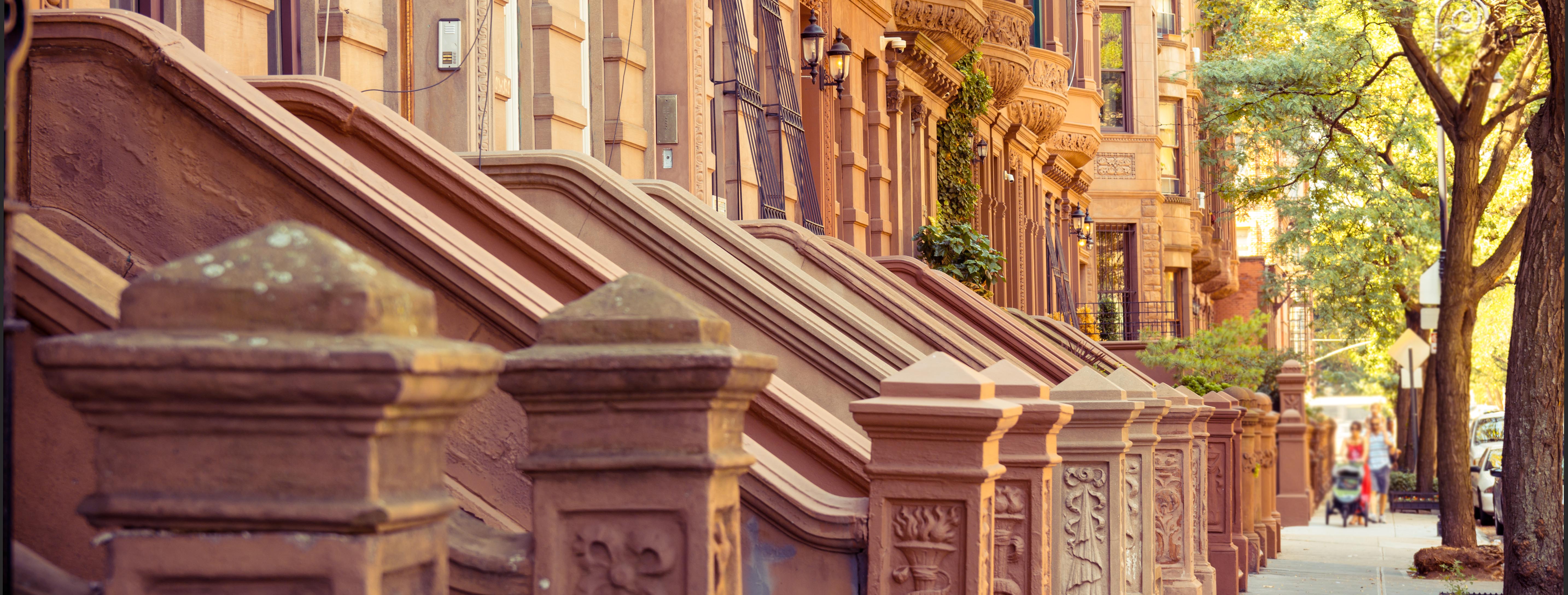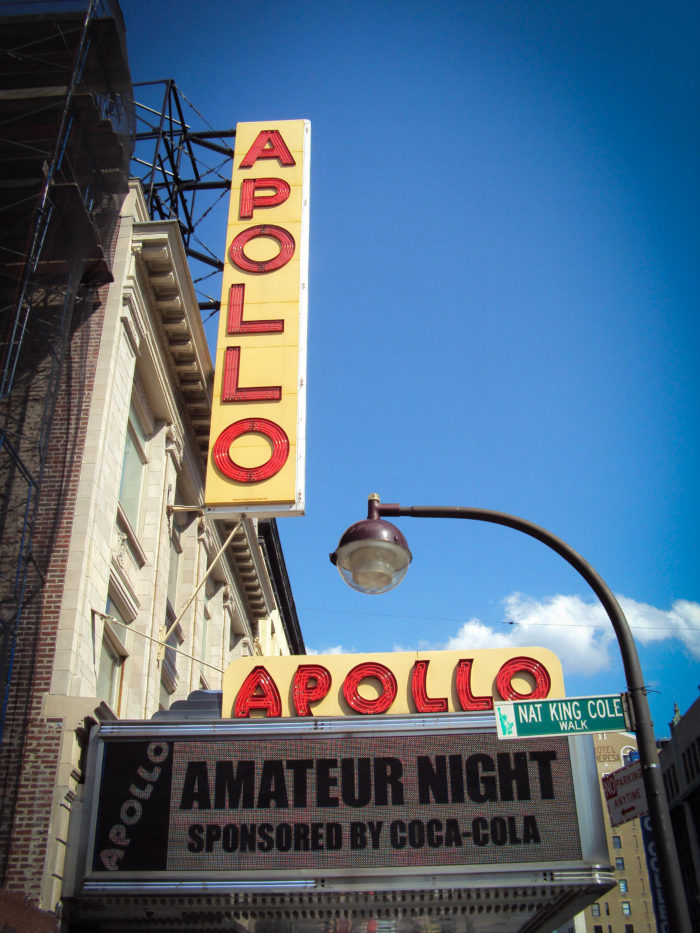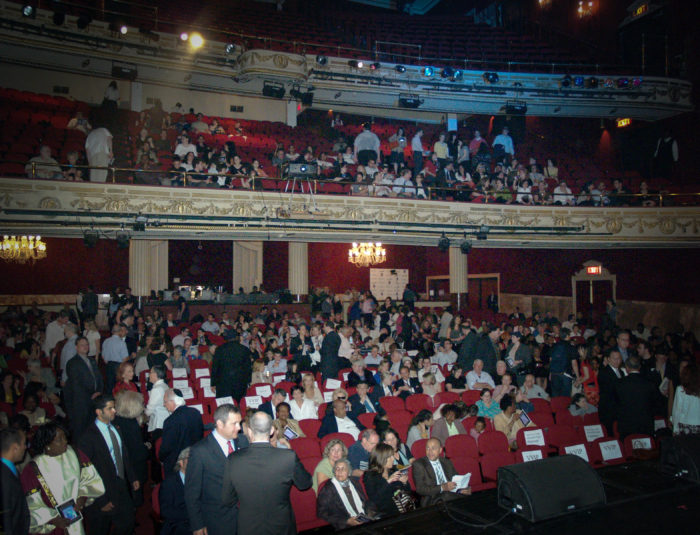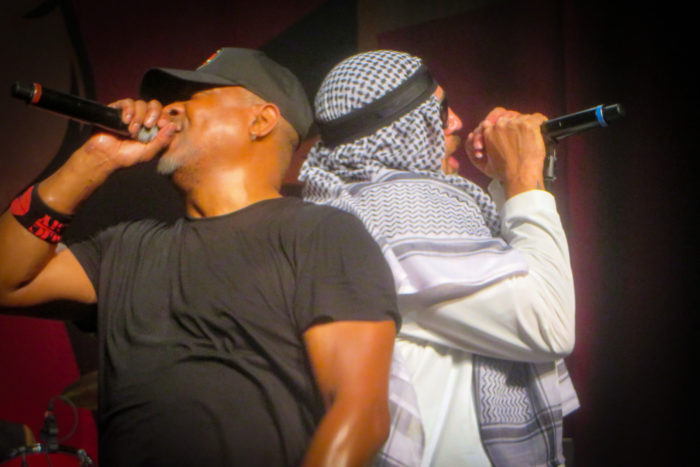History of the Apollo
For many, Harlem is synonymous with the Apollo Theater. Each year an estimated 1.3 million people visit the venue, located at 253 West 125th Street (between Adam Clayton Powell Jr. and Frederick Douglass Boulevards). Just about every African American performer of distinction has performed here: comedians such as “Moms” Mabley, Redd Foxx, and Richard Pryor; dancers including Bill “Bojangles” Robinson and the Nicholas Brothers; vocalists ranging from Billie Holiday to Lena Horne to Aretha Franklin; musicians including Count Basie, Dizzy Gillespie, Lionel Hampton, Miles Davis, and John Coltrane. Winners of the Amateur Night at the Apollo competitions included Pearl Bailey, Sarah Vaughan, James Brown, Gladys Knight, and Jimi Hendrix.
Yet when the Apollo opened in 1914, it was as a burlesque theater. What’s more, blacks were not allowed to perform or to sit in the audience. It remained that way until 1933 when it fell victim to future mayor Fiorello La Guardia’s campaign against burlesque. Owner Sidney Cohen refurbished, renamed, and reopened the theater, now the 125th Street Apollo Theater, in 1934 as a hall for variety revues catering to Harlem’s now-appreciable African American population. At a time when many other theaters were still off-limits to black audiences, performers, and even stagehands, the Apollo was welcomed not just by Harlem’s residents but by the African American community at large. Benny Carter and His Orchestra headlined the reopened theater’s first show, on January 26, 1934. Later that year, 17-year-old Ella Fitzgerald made her singing debut on the Apollo stage, ultimately winning the theater’s first Amateur Night—and with it a prize of $25.
Originally dubbed Audition Night, Amateur Night at the Apollo showcased up-and-coming talent every Monday night and was broadcast live on 22 radio stations across the country, (Today Amateur Night is held on Wednesday evenings.) While the performers may have been novices, they needed to be able to stand up to the crowds like pros. Audiences were just as generous with their boos as with their applause. When it was clear by the volume of the jeers and heckling that an act was bombing, a man dubbed the Executioner would shoo the performer offstage with a broom; later the unfortunate acts might be chased off the stage by a man wielding a cap pistol instead.
James Brown, an Amateur Night winner in 1956, recorded a series of concerts at the venue with his supporting group the Famous Flames in 1962. These became the 1963 album “Live at the Apollo,” which rose to number 2 on the “Billboard” pop charts and introduced him, and the Apollo, to an even wider audience. Brown recorded additional live concerts at the Apollo in 1968, 1971, and 1995. After his death in 2006, his casket was driven through Harlem in a horse-drawn carriage to the Apollo and laid in state on the theater’s stage.
Like the rest of the neighborhood, the Apollo fell upon hard times in the 1970s, shutting down in 1976. It briefly reopened two years later before closing once again. New owners took a renewed interest in the theater in the early 1980s, however, abetted by the Apollo being named a New York City Landmark and gaining a place on the National Register of Historic Places in 1983. Its reopening concert in May 1985, shown as a three-hour television special, included performances from Cab Calloway, Al Green, Patti LaBelle, Little Richard, Smokey Robinson, Diana Ross, Stevie Wonder, and dozens more, including of course, James Brown.
Today Amateur Night is alive and well, the Apollo’s School Day Live program hosts monthly low-cost events for children, and upcoming concerts include one-time subway busker Mike Yung and 2017 Amateur Night winner Michelle Brooks Thompson (January 12), genre-bending Kamasi Washington and his 10-piece band, the Next Step (February 23), and singer/songwriter Alice Smith (March 15). It appears that the Apollo continues to grow and thrive—again, much like Harlem itself.





